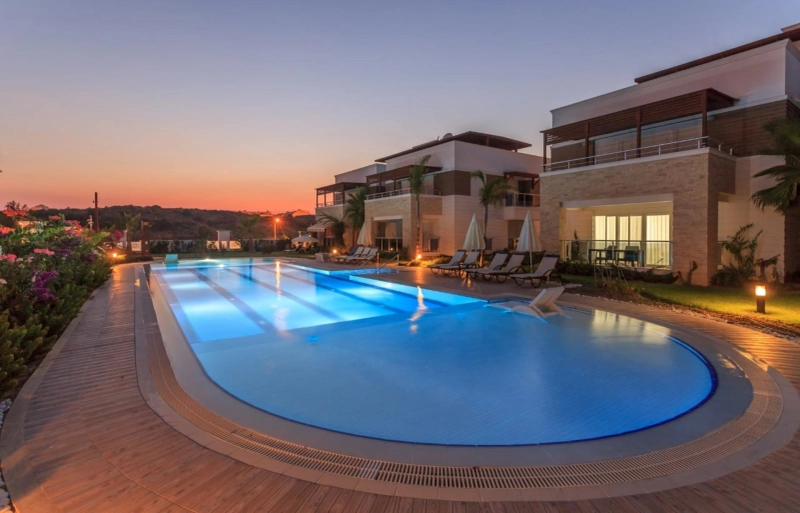Building a swimming pool is a significant investment that requires careful consideration. While a well-planned, constructed, and maintained pool can bring enjoyment for years to come, it's crucial to weigh all your options before making a decision. Beyond the initial construction costs, owning a pool requires a significant amount of time, money, and effort to maintain. Proper preparation is key to ensure a smooth construction process and involves making important decisions about the pool's style, size, and selecting a reputable contractor. By taking the time to educate yourself and plan ahead, you can create the perfect backyard oasis for you and your family to enjoy.
If you're thinking about adding a swimming pool to your home, there are several things to consider before taking the plunge. In this blog post, we'll explore some of the key factors to keep in mind when planning for a pool, including budget, maintenance, location and pool certification. So whether you're looking for a way to beat the summer heat or add value to your home, read on for everything you need to know about building a swimming pool.
Think About Your Purpose
One of the main reasons people choose to install a swimming pool is for the added entertainment value it brings. Having a swimming pool in your backyard can create a fun and inviting atmosphere for family and friends to gather and spend quality time together. From hosting pool parties to simply lounging by the water on a hot summer day, a swimming pool can provide endless hours of entertainment for all ages.
Another reason people may choose to install a swimming pool is for its health benefits. Swimming is a low-impact exercise that can be beneficial for people of all ages and fitness levels. Regular swimming can improve cardiovascular health, build strength and endurance, and even help with weight loss. Additionally, swimming can be a therapeutic activity for those recovering from injuries or dealing with chronic pain.
Owning a swimming pool can also add value to your home. A well-designed and maintained swimming pool can increase the resale value of your property and make it more appealing to potential buyers. In some areas, a swimming pool can even be seen as a necessity, especially in warmer climates where outdoor living spaces are highly valued.
Start With The Planning
The first step in planning your dream swimming pool is to determine your needs and preferences. Are you looking for a pool for exercise, relaxation, or entertainment? Do you want a large pool or a small one? Do you want features like a waterfall, slide, or spa? Consider your budget, as well as any zoning and building requirements in your area.
Once you have a good idea of your needs and preferences, it's time to consider the available space in your backyard. Determine the location and size of your pool based on your yard's dimensions and any existing features like trees, gardens, or patios. Consider factors like sunlight exposure and privacy when choosing a location for your pool.
When it comes to the design of your pool, there are many options to choose from. Consider factors like the shape, depth, and materials of your pool. Some popular options include infinity pools, lap pools, and naturalistic pools that blend in with the surrounding landscape. Choose materials like tile, stone, or concrete to complement the style of your home and create a cohesive look.
In addition to the design of your pool, think about features like lighting, heating, and filtration. These features can make your pool more enjoyable and easier to maintain. Consider adding a pool cover to protect your pool from leaves and debris, and invest in regular maintenance to keep your pool clean and safe for use. With careful planning and design, you can create the swimming pool of your dreams that provides years of enjoyment for you and your family.
Consider The Design
One of the first things to consider when designing your dream swimming pool is its size and shape. The size of your pool will depend on a number of factors, including the size of your yard, the number of people who will be using the pool, and your budget. You’ll also want to consider the shape of your pool, which can range from classic rectangular shapes to more creative and organic shapes that are designed to blend in with your landscaping.
Another important consideration when designing your dream swimming pool is the intended use of your pool. Do you want a pool for exercise and swimming laps, or do you want a pool for relaxing and entertaining? If you plan on using your pool for exercise, you may want to consider a longer, rectangular pool design. If you plan on using your pool for entertaining, you may want to consider adding features such as a hot tub or a waterfall.
The aesthetics of your pool are also an important consideration when designing your dream swimming pool. You’ll want to consider the colour and material of your pool deck, as well as the landscaping around your pool. You may also want to consider adding features such as waterfalls, fountains, or lighting to create a truly unique and beautiful pool design.
Ultimately, the design of your dream swimming pool will depend on your personal preferences and the unique characteristics of your property. With careful planning and consideration, however, you can create a beautiful and functional pool that will provide years of enjoyment for you and your family.
Lookout For The Budget
A swimming pool can be a significant investment, and it's important to be prepared for ongoing expenses. Before you start shopping for a swimming pool, you should do your research and figure out what type of pool you want and what your budget will be. Consider factors like the size of your yard, the type of pool you want, and how much you're willing to spend. Once you have a good idea of what you want, you can start looking at prices and making a plan.
One of the most important things to consider when budgeting for a swimming pool is the cost of installation. Depending on the type of pool you choose and the features you want, installation costs can vary significantly. In-ground pools, for example, are generally more expensive to install than above-ground pools, and features like waterfalls or slides can add to the cost. You should also factor in the cost of any necessary permits or inspections.
Another major expense associated with swimming pools is ongoing maintenance. Depending on the type of pool you have, you may need to purchase chemicals, a pool vacuum, or other equipment to keep the water clean and clear. You'll also need to factor in the cost of electricity to run the pool pump and heater, as well as water costs if you live in an area with high water rates.
It's also important to consider the potential cost of repairs and upgrades over time. While a well-maintained pool can last for many years, eventually you may need to replace the liner or make other repairs. You may also want to upgrade your pool with new features or technology. These costs can add up over time, so it's important to factor them into your budget from the start.
Be Familiar With Rules And Regulations
Building a swimming pool can be an exciting project, but it's essential to familiarise yourself with the rules and regulations involved. Depending on your location, there may be specific requirements that need to be met, such as obtaining building permits or meeting safety standards. It's important to research and understand these rules before beginning any construction to avoid fines or legal issues down the line.
One key area to focus on when building a swimming pool is safety regulations. This includes ensuring that the pool is properly fenced or enclosed to prevent unauthorised access and potential accidents. Additionally, many areas require that pools have specific safety features such as pool alarms or covers. You should also consider things like the depth of the pool and whether or not it meets safety standards, especially if children or non-swimmers will be using the pool.
Another area to consider is water conservation regulations. Depending on where you live, you may need to follow certain guidelines for the amount of water you use or the types of chemicals you use to treat the water. This is especially important in areas with drought or water shortages. Some areas also have rules about draining and refilling pools, so it's important to be aware of these regulations to avoid any fines or penalties.
So, there you have it. Everything you need to know about swimming pools before construction. If you’re looking for a pool contractor, we recommend contacting Vital Building Inspection. They are certified professionals who will help make your dream pool a reality. And remember, always get a building inspection before you start construction!


